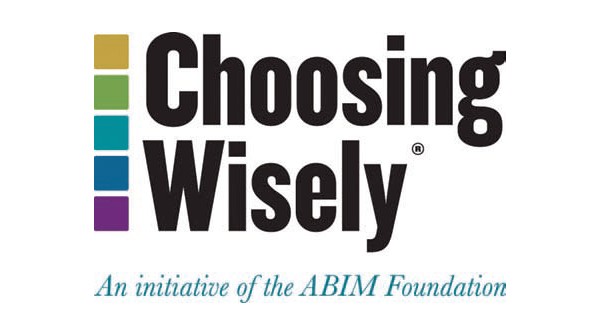
In last month’s ACEP13 Opening Session, ACEP announced its list of five tests and procedures that may not be cost effective in some situations and should prompt discussion with patients in order to both educate them and gain their agreement regarding avoidance of such tests and procedures, when appropriate. These recommendations are part of ACEP’s partnership in the Choosing Wisely® campaign.
Explore This Issue
ACEP News: Vol 32 – No 11 – November 2013The mission of “Choosing Wisely” – a multi-year effort of the American Board of Internal Medicine (ABIM) Foundation – is to promote conversations among physicians and patients about using appropriate tests and treatments and avoiding care when harm may outweigh benefits.
Since launching in April of 2012, more than 80 national, regional and state medical specialty societies and consumer groups have become “Choosing Wisely” partners. ACEP officially joined the campaign in February of this year.
ACEP’s five recommendations for the campaign are:
- Avoid CT of the head in emergency department patients with minor head injury who are at low risk based on validated decision rules. Minor head injury is a common reason for visiting an emergency department. The majority of minor head injuries do not lead to skull fractures or bleeding in the brain – which would need to be diagnosed by a CT scan.
- Avoid placing indwelling urinary catheters in the emergency department for either urine output monitoring in stable patients who can urinate on their own, or for patient or staff convenience. These catheters are used to assist when patients cannot urinate, to monitor how much they urinate, or for patient comfort.
- Do not delay available palliative and hospice care services in the emergency department for patients likely to benefit. This is medical care that provides comfort and relief for patients who have chronic or incurable diseases.
Early referral from the emergency department to hospice or palliative care services can benefit patients, resulting in both improved quality and quantity of life.
- Avoid antibiotics and wound cultures in emergency department patients with uncomplicated skin and soft tissue abscesses after successful incision and drainage and with adequate medical follow-up.
Skin and soft tissue infections are a frequent reason for visiting an emergency department. Some infections, called abscesses, become walled off under the skin. Opening and draining the abscess is the appropriate treatment; antibiotics offer no benefit.
- Avoid instituting IV fluids before doing a trial of oral hydration in uncomplicated emergency department cases of mild to moderate dehydration of children. Many patients who come to the emergency department with dehydration require fluids. To avoid pain and potential complications, it’s preferable to give these fluids by mouth instead of the use of an IV.
ACEP previously declined to participate in the “Choosing Wisely”campaign because of potential conflicts of this approach with the unique nature of emergency medicine as compared with office-based practices, and because of concerns that advocacy for medical liability reform is missing from the “Choosing Wisely” campaign.
“Overuse of medical tests is a serious problem, and health care reform is incomplete without medical liability reform,” said ACEP President Dr. Alex Rosenau.
“Millions of dollars in defensive medicine are driving up the costs of health care for everyone. We will continue to encourage the ABIM Foundation and its many partnersin this campaign to lend their influential voices to the need for medical liability reform,” according to Dr. Rosenau.
How This List Was Created
ACEP developed five Choosing Wisely® recommendations through a multi-step process that included input from ACEP members, an expert panel of emergency physicians, and the ACEP Board of Directors. In 2012, ACEP appointed a task force to address cost effective emergency care.
The Cost Effective Care Task Force conducted a survey that was open to all ACEP members asking for strategies to reduce cost and improve value in emergency medicine. The task force received over 200 individual suggestions, which were grouped into a set of strategies.
A technical expert panel, including representatives from all aspects of emergency medicine practice, reviewed and prioritized the recommendations using a modified Delphi technique.
The panel prioritized the strategies using multiple rounds of voting based on the contribution to cost reduction, the benefit to patients, and the actionability by emergency physicians.
A literature review including data on cost was assembled for the highest-rated strategies. Strategies were further refined, and a final list of strategies that received majority support of the panelists was created. Five of these were ultimately selected by the Board of Directors to be included in Choosing Wisely.®
ACEP’s disclosure and conflict of interest policy can be found online.
Pages: 1 2 | Multi-Page





No Responses to “ACEP Joins Choosing Wisely Campaign”